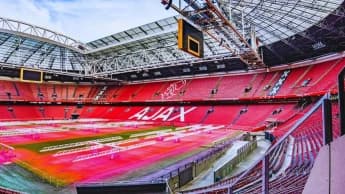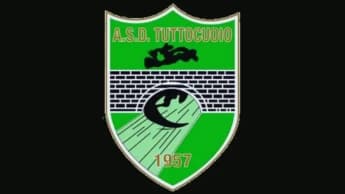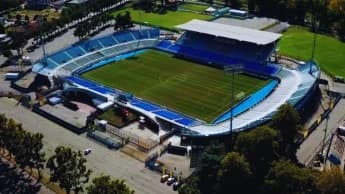
Bilbao FC, though short-lived, significantly shaped the football scene in Spain, influencing Athletic Club and leaving a lasting legacy on Bilbao’s football culture.
Bilbao Football Club was a briefly existing but historically important football team located in Bilbao, Spain, operating from 1900 to 1903. The club was established by a group of wealthy locals and British expatriates, merging the bourgeois culture of Bilbao with the athletic ethos of British football. Even though its existence was short-lived, Bilbao FC significantly contributed to the development of the city’s football culture and set the stage for the future prominence of the region in the sport.
The club's beginnings can be traced to a collective of football enthusiasts, spearheaded by Carlos Castellanos, who is widely recognized for bringing the sport to the Iberian Peninsula. Embodying a spirit of innovation, Bilbao FC emerged as one of the first organized football teams in Spain, challenging other nascent clubs. Their involvement and dedication laid the groundwork for the future achievements of Athletic Club.
Bilbao FC is remembered as more than merely a football club; it served as an emblem of Bilbao’s global connections and progressive attitude during the late 19th and early 20th centuries. The establishment of the club marked a significant moment in the larger narrative of football's arrival in Spain, highlighting the ability of the sport to cross boundaries and unite communities.
Accomplishments of the Team
Although Bilbao FC's existence was short-lived, the club made remarkable achievements that secured its position in the annals of Spanish football history. In 1902, it joined forces with Athletic Club to create Club Vizcaya, which triumphed in the very first Copa de la Coronación. This tournament is often seen as the forerunner to the Copa del Rey and marked a pivotal moment in the history of football in Spain.
The triumph in the 1902 Copa de la Coronación marked a pivotal moment for Bilbao FC, highlighting their competitive nature and their ability to unite with rivals to achieve greater accomplishments. This victory showcased the club’s talent in competing against the leading teams of the time, including their win against Barcelona in the final.
In addition to their trophies, the most significant achievement of Bilbao FC was their contribution to the popularization and formalization of football in Bilbao. The club established the foundation for the region's football identity, playing a critical role in the later rise of Athletic Club as a dominant force in the sport.
Even though Bilbao FC merged with Athletic Club in 1903, its influence endures through the ongoing achievements of football in Bilbao. The club is acknowledged as a significant foundation for Athletic Club, which subsequently became a powerful force in Spanish football during its formative years.
Strengths and Limitations
A key strength of Bilbao FC was its innovative spirit and forward-thinking vision. Established by prominent figures such as Carlos Castellanos, the club introduced a systematic and organized approach to football in Bilbao, establishing benchmarks for future teams. Their capacity to work in unison with Athletic Club demonstrated their flexibility and teamwork, essential elements for their achievements.
The club benefitted from its ties to British football traditions. With British expatriates playing a key role in its formation, Bilbao FC embraced a structured style of play and introduced innovative tactics to Spanish football. These aspects provided them with a competitive advantage over other emerging clubs in the area.
One of the primary drawbacks of the club was its limited resources and ephemeral existence. During a period when football was still emerging in Spain, Bilbao FC faced challenges in creating a lasting organizational framework. Their dependence on outside factors, such as British expatriates and the influence of local aristocracy, rendered them susceptible to fluctuations in both local and international circumstances.
A significant challenge they faced was their struggle to maintain a unique identity, as they were ultimately incorporated into Athletic Club. Although this merger brought about greater success for football in Bilbao, it signified the conclusion of Bilbao FC’s independent legacy, restricting its potential for growth as a separate entity.
Tactics and Playing Style
The tactical strategy of Bilbao FC was shaped significantly by British football, emphasizing discipline, collaboration, and a structured style of play. The team focused on precise passing and well-organized formations, reflecting the football traditions introduced by British expatriates in the city.
The club's choice of white shirts and shorts represented their straightforward and methodical approach to the game. They frequently employed positional play, ensuring a solid defensive structure while taking advantage of counterattacking opportunities. This strategy allowed them to effectively compete against more established teams.
A defining characteristic of Bilbao FC’s playing style was its flexibility. The team's capacity to blend Spanish players with British influences resulted in a hybrid approach that connected local and international football traditions. This adaptability was instrumental in their achievements during the Copa de la Coronación.
Nonetheless, the tactical complexity of the team was inhibited by its brief lifespan. Although they implemented cutting-edge techniques of their era, their playing style lacked the sophistication and progression characteristic of more enduring clubs. Even so, the strategies employed by Bilbao FC provided a foundational influence for the tactical methods that would later be adopted by Athletic Club.
Significant Matches
The 1902 Copa de la Coronación marked the most significant contribution of Bilbao FC to football history. In this pivotal tournament, they collaborated with Athletic Club to create Club Vizcaya, which triumphed over FC Barcelona with a score of 2–1 in the final match to seize the championship. This win was a crucial milestone for football in Bilbao, highlighting the region's capabilities on a national level.
A notable event in the club’s history was its initial games against British teams and crews from English ships. These matches, held at the Hippodrome of Lamiako, brought competitive football to Bilbao, drawing in local crowds and fostering a fanbase that would eventually support Athletic Club.
The early 1890s matches against Club Atleta were crucial for the development of football in Bilbao. These games signaled the start of organized football in the city and laid the groundwork for the sport's subsequent expansion. The lively rivalry between these two clubs fostered a lasting football culture that continues to thrive today.
In addition, Bilbao FC played a significant role in the establishment of Real Sporting Club in 1898, further enriching their legacy. By aiding in the formation of other football organizations, Bilbao FC broadened their influence beyond their own games, impacting the larger football landscape in Spain.
Prospects for the Future
Although Bilbao FC is no longer operational as an independent organization, its historical impact persists through Athletic Club and the footballing culture of Bilbao. The club's groundbreaking initiatives established a solid groundwork for the area's prominence in Spanish football, with Athletic Club continuing to acknowledge the contributions made by Bilbao FC.
The commitment of Athletic Club to fielding local players reflects the principles that were established during the era of Bilbao FC. This emphasis on developing homegrown talent ensures that the essence of Bilbao FC continues to thrive, even in contemporary football.
The future for the legacy of Bilbao FC includes ongoing acknowledgment of its historical importance. By safeguarding and sharing their narrative, football historians and enthusiasts can ensure that the contributions of Bilbao FC remain an essential aspect of Spanish football heritage.
Although the club may not be revived, its legacy continues to inspire new generations of players and supporters in Bilbao. The lasting enthusiasm for football in the city serves as a tribute to the groundbreaking efforts of Bilbao FC and its founders.





